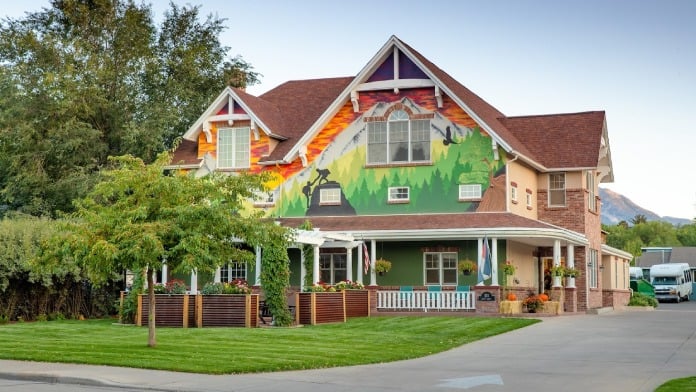My saving grace! They helped me with knowledge and care, I honestly think they are actual angels. Janitors, cooks, financial staff and counselors are 100% committed to this cause. Compassion and quality care is their motto. I can't recommend it enough!
About Keystone Treatment Center
As part of their drug and alcohol addiction treatment program, they offer medically monitored detox services. This helps you rid your body of toxins in a safe and controlled manner, ensuring you’re comfortable and supported through one of the hardest parts of addiction recovery. After detox, you’ll start attending individual, family, and group therapy sessions to work through self destructive behaviors and heal damaged relationships.
Their young adult program deals with age related topics like dating, facing peer pressure, difficulty with family relationships and the transition into full time independence. Together with your peers, you’ll strengthen your personal value system and learn techniques to support yourself in a sustainable and healthy way.
Members of the military, veterans, and their families are more vulnerable to addiction than others are. That’s why Keystone Treatment Center has a program specially adapted to their needs. They’ve found that addiction frequently co-occurs with PTSD in these groups. Their program views treating addiction as the first step in recovering from PTSD.
Depending on your personalized treatment plan, you might participate in group and individual therapy, educational sessions, spiritual development sessions, creative activities, journaling, seasonal outdoor games or 12 step inspired programs.
Facility Overview
Latest Reviews
Rehab Score
Gallery

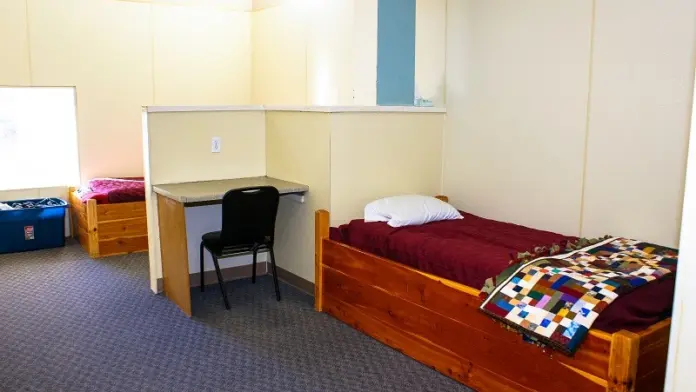
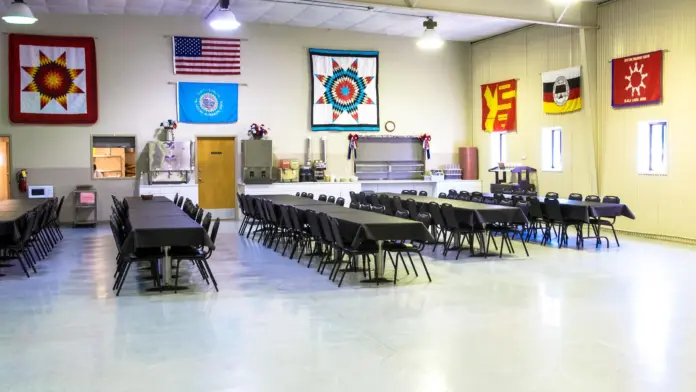
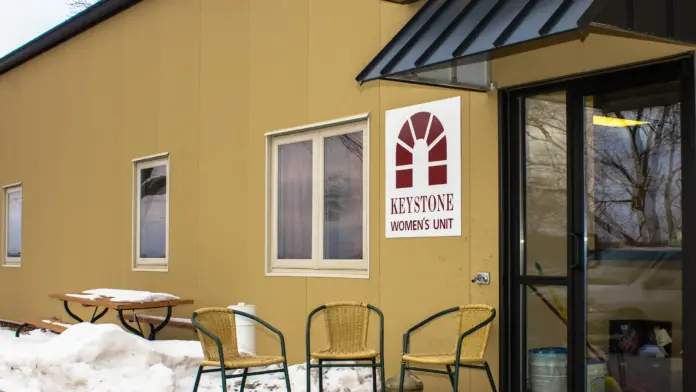
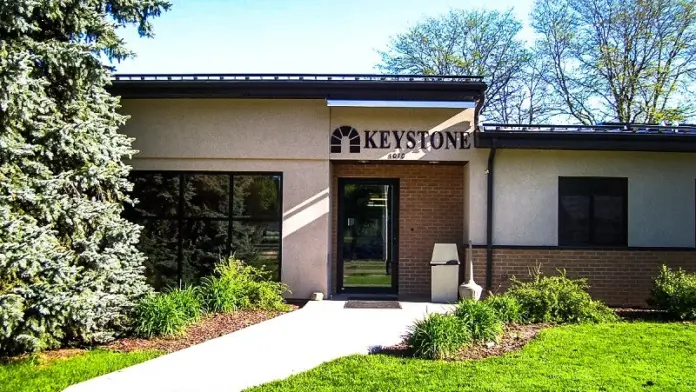
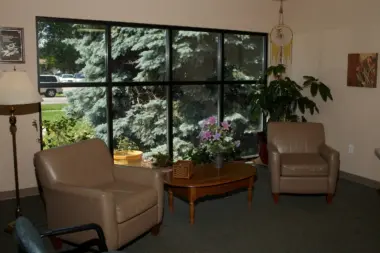
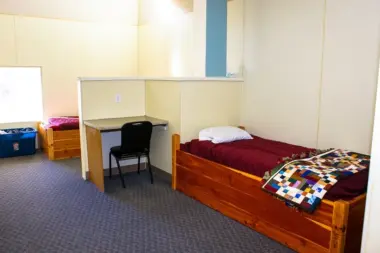
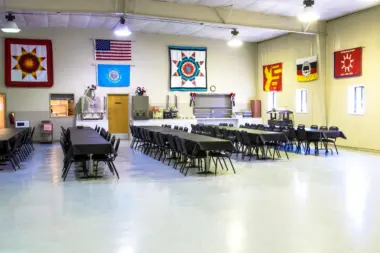
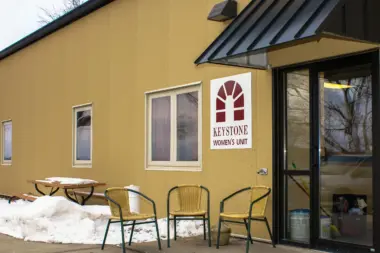
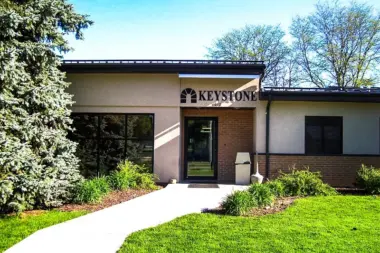
Accepted Insurance



Other Forms of Payment
Private insurance refers to any kind of healthcare coverage that isn't from the state or federal government. This includes individual and family plans offered by an employer or purchased from the Insurance Marketplace. Every plan will have different requirements and out of pocket costs so be sure to get the full details before you start treatment.
Self-pay involves paying for treatment out of your own pocket. You can use savings or credit, get a personal loan, or receive help from family and friends to fund your treatment. If you don't have insurance or your insurance plan doesn't cover a specific program, self-pay can help ensure you still get the care you need.
Financial aid can take many forms. Centers may have grants or scholarships available to clients who meet eligibility requirements. Programs that receive SAMHSA grants may have financial aid available for those who need treatment as well. Grants and scholarships can help you pai for treatment without having to repay.
Medicaid is a state based program that helps lower-income individuals and families pay for healthcare. Medicaid covers addiction treatment so those enrolled can use their coverage to pay for rehab. When a program accepts Medicaid the client often pays very little or nothing out of their own pocket.
Addiction Treatments
Levels of Care
Drug and alcohol addiction often takes a heavy toll on one's body. Over time, a physical dependence can develop, meaning the body physiologically needs the substance to function. Detox is the process of removing drugs and/or alcohol from the body, a process that can be lethal if mismanaged. Medical detox is done by licensed medical professionals who monitor vital signs and keep you safe, healthy, and as comfortable as possible as you go through detox and withdrawal.
Intensive Outpatient Programs (IOP) are for those who want or need a very structured treatment program but who also wish to live at home and continue with certain responsibilities (such as work or school). IOP substance abuse treatment programs vary in duration and intensity, and certain outpatient rehab centers will offer individualized treatment programs.
Clients in outpatient drug rehab remain in their home and community while receiving treatment on their schedule. Many facilities offer day, evening, night, and weekend sessions, as well as virtual care. Outpatient treatment typically encompasses multiple levels of care, including partial hospitalization (PHP), intensive outpatient (IOP), sober living and supportive housing, and standard outpatient services. Most outpatient rehabs provide a range of services, including psychotherapy, medical and mental health assessments, drug testing, addiction education, and medication induction and maintenance.
Each sober living home in South Dakota is a group residence designated for men or women who are recovering from addiction. Residents agree to remain sober and submit to random drug tests while living in the home. Each person must also pay rent and contribute to household maintenance. Some halfway houses offer sliding scale fees that allow residents to pay a rent amount based on their income.
Treatments
Individuals who are caught in the grips of an addiction to drugs and/or alcohol often struggle with the symptoms of a mental health condition or conditions at the same time. When these two concerns exist alongside one another, it is known as dual diagnosis. For some individuals, the symptoms of a mental illness can trigger the abuse of substances as a way of falsely alleviating the distress and turmoil caused by the presence of such an illness. Unfortunately, when this is the case, a person can quickly become trapped in the seemingly never-ending cycle of substance abuse and ultimately experience the worsening of mental health disorder symptoms. Furthermore, the abuse of substances can cause the onset of mental health disorder symptoms if a person possesses a genetic predisposition for a condition, or if the resulting effects of substance abuse causes the person to experience the symptoms of such disorders as well. Depressive disorders, anxiety disorders, bipolar disorder, and post-traumatic stress disorder are examples of mental illnesses that frequently exist alongside substance use disorders that involve the abuse of opioids, meth, cocaine, alcohol, or another licit or illicit substance.
Substance rehabs focus on helping individuals recover from substance abuse, including alcohol and drug addiction (both illegal and prescription drugs). They often include the opportunity to engage in both individual as well as group therapy.
Programs
Adult rehab programs include therapies tailored to each client's specific needs, goals, and recovery progress. They are tailored to the specific challenges adult clients may face, including family and work pressures and commitments. From inpatient and residential treatment to various levels of outpatient services, there are many options available. Some facilities also help adults work through co-occurring conditions, like anxiety, that can accompany addiction.
Young adulthood can be an exciting, yet difficult, time of transition. Individuals in their late teens to mid-20s face unique stressors related to school, jobs, families, and social circles, which can lead to a rise in substance use. Rehab centers with dedicated young adult programs will include activities and amenities that cater to this age group, with an emphasis on specialized counseling, peer socialization, and ongoing aftercare.
Clinical Services
Experiential therapy is a form of therapy in which clients are encouraged to surface and work through subconscious issues by engaging in real-time experiences. Experiential therapy departs from traditional talk therapy by involving the body, and having clients engage in activities, movements, and physical and emotional expression. This can involve role-play or using props (which can include other people). Experiential therapy can help people process trauma, memories, and emotion quickly, deeply, and in a lasting fashion, leading to substantial and impactful healing.
The Family Program is held every Sunday immediately prior to visiting hours. This program includes one hour of psycho-educational programming for family members that they are able to engage in before meeting with their loved one for visiting hours. In addition to the weekly Sunday programming, Keystone’s Family Program includes day-long programming on Mondays and Tuesdays. Participation in these day-long sessions is scheduled with the family’s input and in conjunction with the patient and the patient’s family therapist. In most circumstances, each family will be asked to come in for a session during the third week of their loved one’s time in treatment. However, this time frame may be altered depending upon each patient’s specific needs and treatment plans.
Group therapy is any therapeutic work that happens in a group (not one-on-one). There are a number of different group therapy modalities, including support groups, experiential therapy, psycho-education, and more. Group therapy involves treatment as well as processing interaction between group members.
In individual therapy, a patient meets one-on-one with a trained psychologist or counselor. Therapy is a pivotal part of effective substance abuse treatment, as it often covers root causes of addiction, including challenges faced by the patient in their social, family, and work/school life.
Amenities
-
Residential Setting
-
Private Setting
Staff & Accreditations
Staff

Josh Merkley
CEO

Nick Welter
CFO
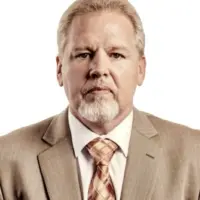
Erik Miller
Director of Business Development
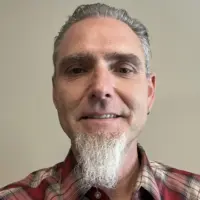
Jason Stricklin, BS, CAC, LADC
Director of Outpatient Services
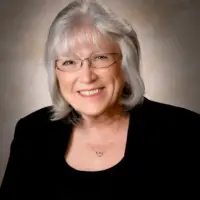
Marsha Nelsen
Medical Director
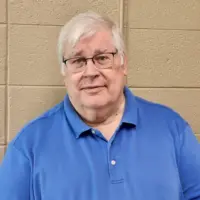
Robert Bogue
Clinical Director
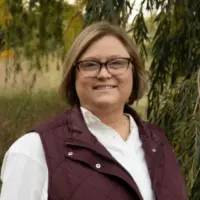
Terri Clark, DNP, RN
Director of Nursing
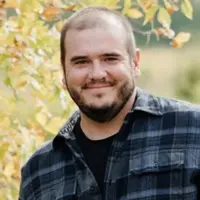
Chance Brown
Director of Human Resources
Accreditations

The Commission on Accreditation of Rehabilitation Facilities (CARF) is a non-profit organization that specifically accredits rehab organizations. Founded in 1966, CARF's, mission is to help service providers like rehab facilities maintain high standards of care.
CARF Accreditation: Yes
Accreditation Number: 203417
Contact Information
1010 East 2nd Street
Canton, SD 57013






